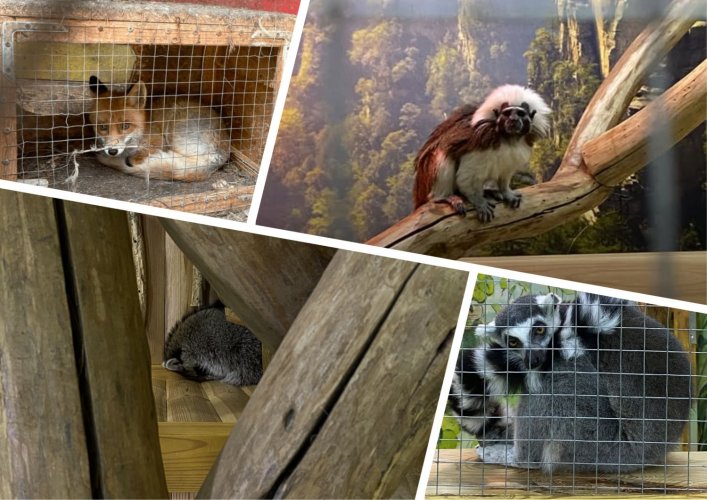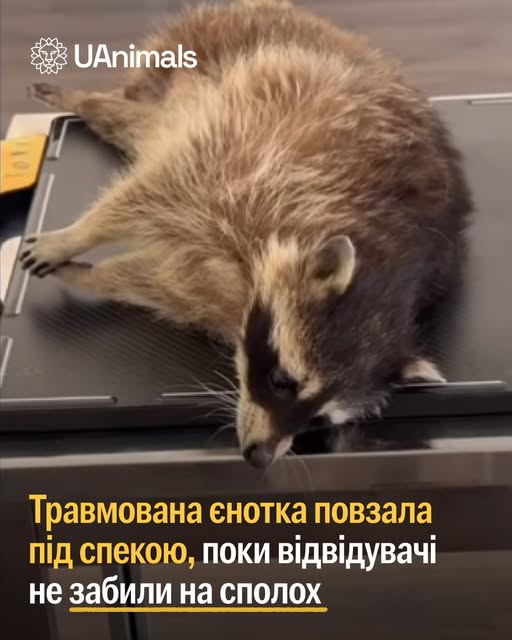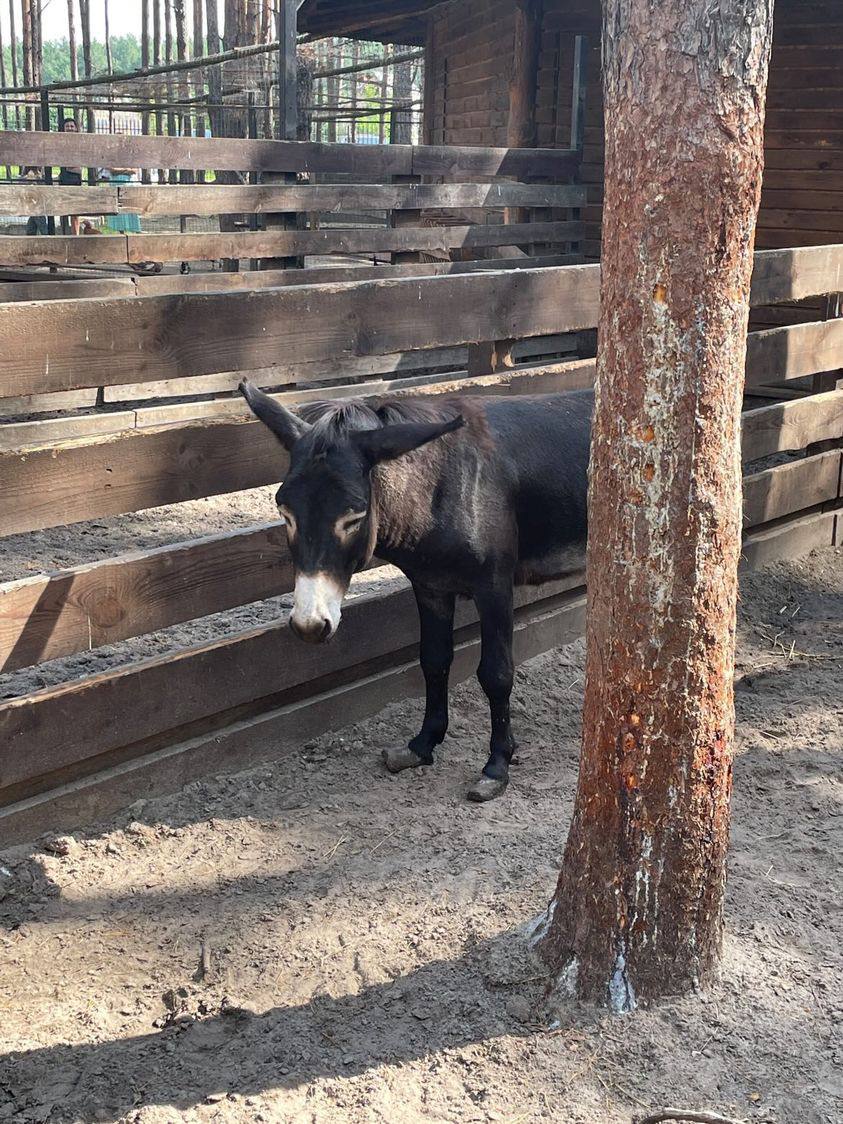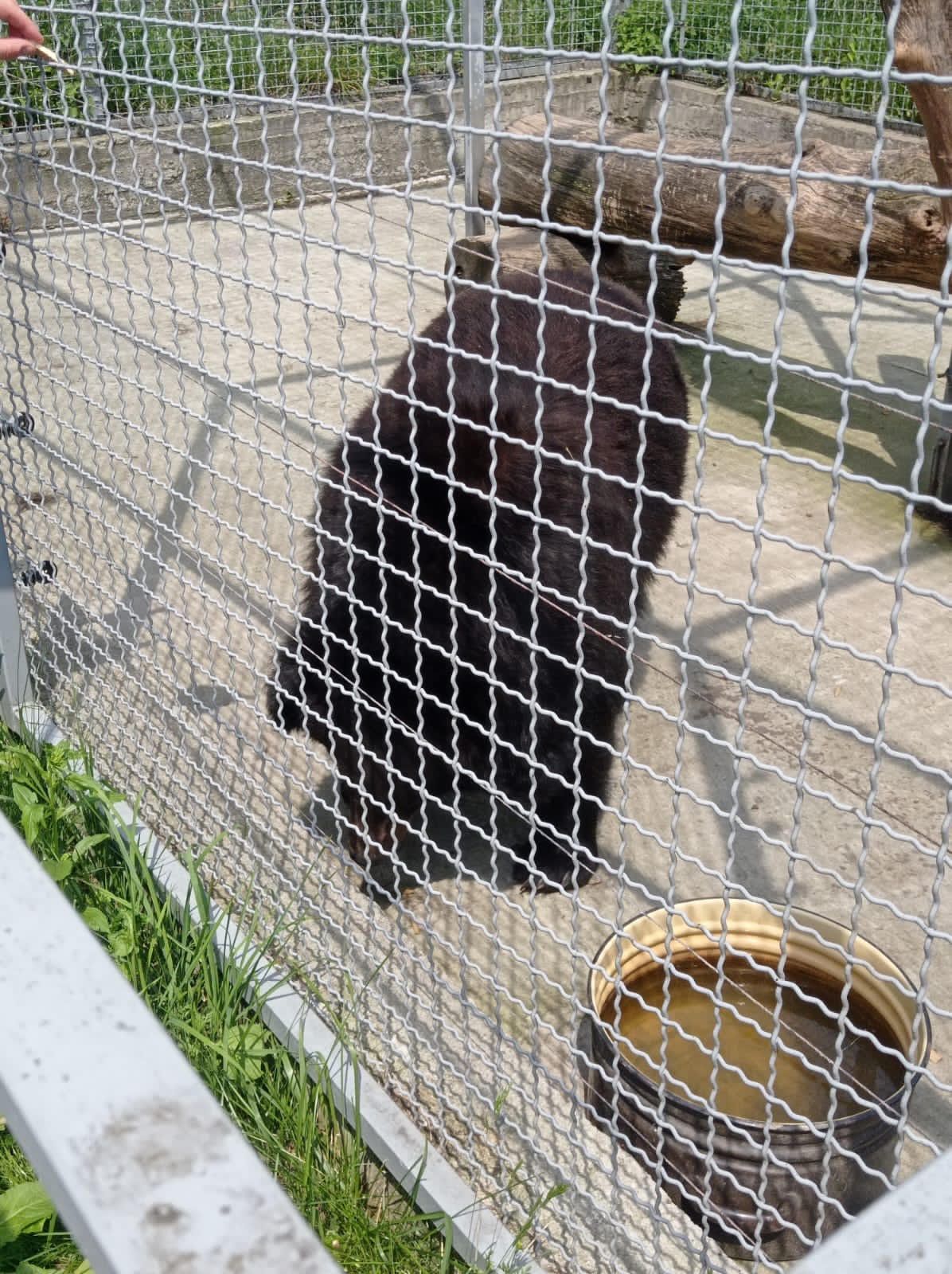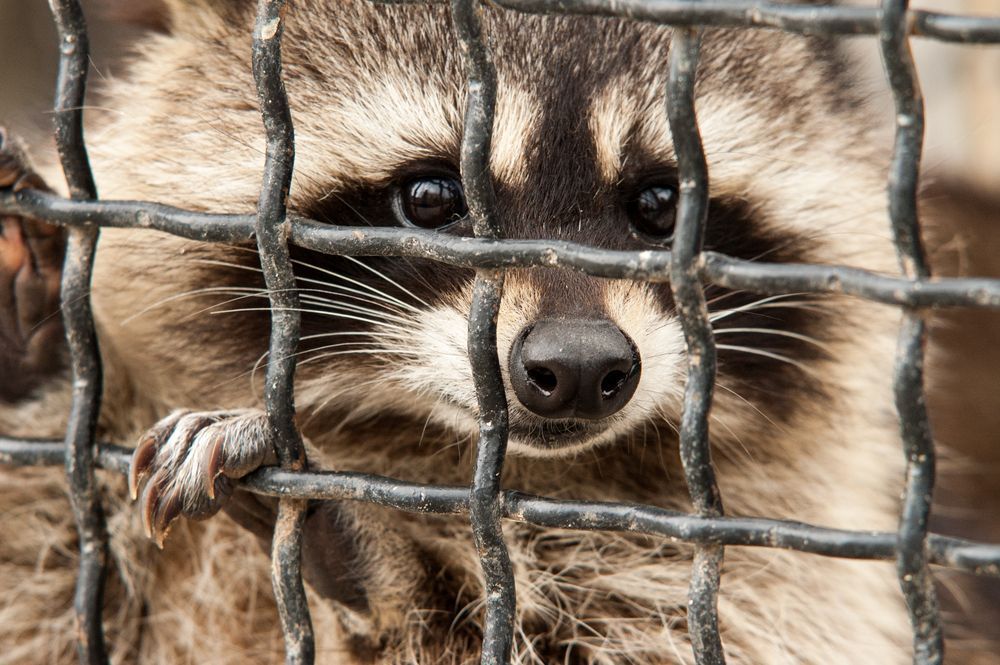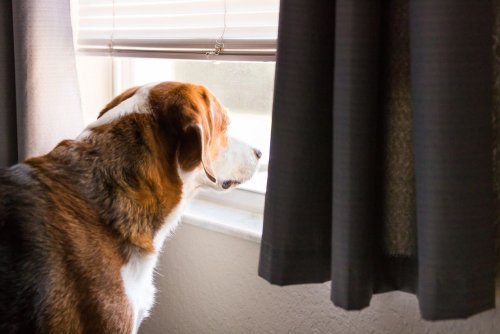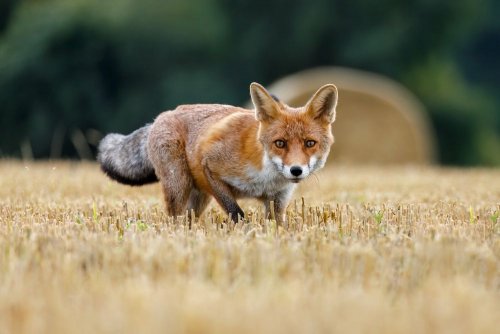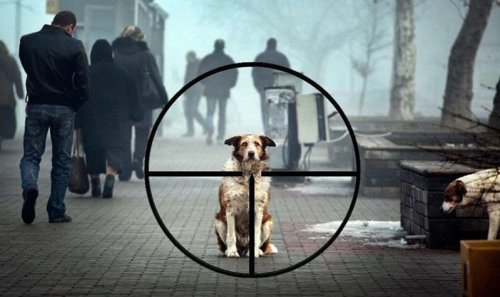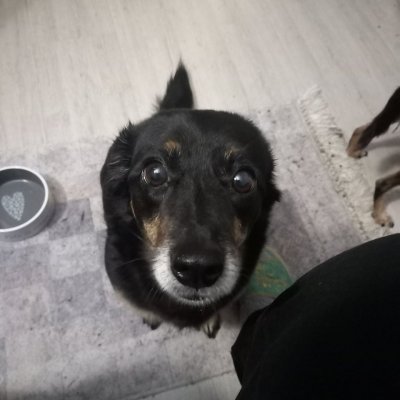In August 2025, a petition was posted on the website of the Verkhovna Rada of Ukraine with a simple but categorical demand: to immediately ban the activities of contact zoos in Ukraine, as well as to adopt appropriate legislation that would make it impossible to exploit wild animals for entertainment purposes. This is not the first attempt – similar initiatives have been made before, but the topic keeps coming back because the problem is not going away, and the authorities at various levels are too busy with other issues to pay attention to animal protection.
EcoPolitic journalists investigated why animal exploitation is still acceptable in our country, what gaps in the legislation contribute to this, and who should protect wild animals that for various reasons are in captivity.
Previous petitions
The petition currently open for signatures is another attempt by concerned citizens to get through to those in power. Petitions to ban the activities of petting zoos have been submitted at different levels: in 2018, 2019, and 2022, petitions were filed with the President of Ukraine. In 2020, citizens appealed to the local authorities of Chernivtsi, requesting a ban on both traveling and permanent institutions of this type within the city. A similar petition was also considered by Svaliava City Council in 2021.
The petitions to the head of state did not receive even two hundred signatures, most likely due to the lack of publicity on social media and in the press.
But the people of Chernivtsi managed to collect the necessary signatures. In response to the petition, the local authorities stated that they would prepare an appeal to the Main Department of the State Service of Ukraine for Food Safety and Consumer Protection in Chernivtsi Oblast, the State Environmental Inspectorate in Chernivtsi Oblast, and the Department of Ecology and Natural Resources of the Chernivtsi Oblast State Administration. As of now, we have not found any information about functioning stationary contact zoos in Chernivtsi shopping malls. Perhaps the issue has been resolved.
If you want to support the current petition on the Verkhovna Rada website, you can do so until November 7. And every signature here is another voice against cramped cages and life "for show."
Why animal rights activists are against
They consider petting zoos to be a form of animal cruelty for the following reasons:
- These institutions violate animal rights:
- they keep wild animals in unnatural conditions that do not even meet the minimum standards set by the Procedure for the Maintenance and Breeding of Wild Animals in Captivity or Semi-Free Conditions;
- they force animals into constant contact with people, causing stress;
- they compel animals that are nocturnal or crepuscular to interact with visitors during daylight hours;
- they do not provide proper conditions for keeping wild animals in accordance with their natural needs;
- they do not provide adequate veterinary care.
- They pose a threat to public health, as there is a risk of disease transmission from animals to humans, as well as injuries to visitors.
- They have a negative educational effect, as they shape children's improper attitudes towards wild animals and create the illusion that these animals exist solely for human entertainment. Additionally, petting zoos provide no educational value regarding nature conservation.
The illusion of goodness and the cruel reality
Petting zoos often advertise themselves as a "safe space for children to interact with animals". But behind this attractive façade, there is constant stress, loud screams, camera flashes, and animals that are forced to be living toys day in and day out.
The animal protection organization UAnimals constantly publicizes cases of improper keeping of animals in petting zoos and calls for a ban on the activities of such institutions in our country:
-
A very recent incident: in early September, visitors to the "Biopark Odesa" petting zoo recorded a video of a raccoon whose hind legs had become paralyzed. Despite the animal’s helpless condition, the zoo owners continued to display her publicly and did not provide medical assistance. The video sparked outrage in society. Visitors also complain that the animals at "Biopark Odesa" look hungry and that an electrified fence is present in the enclosure.

Photo: facebook.com/UAnimals.official.
-
There has also been a high-profile case against the network of petting zoos "Zviropolis," which operate in Kyiv, Dnipro, and Kryvyi Rih. Its owners continue to operate despite lacking permits from the relevant ministry to keep wild animals. According to testimonies of former employees, the animals are kept in inappropriate conditions and are often fed unsuitable food, which results in fatalities.
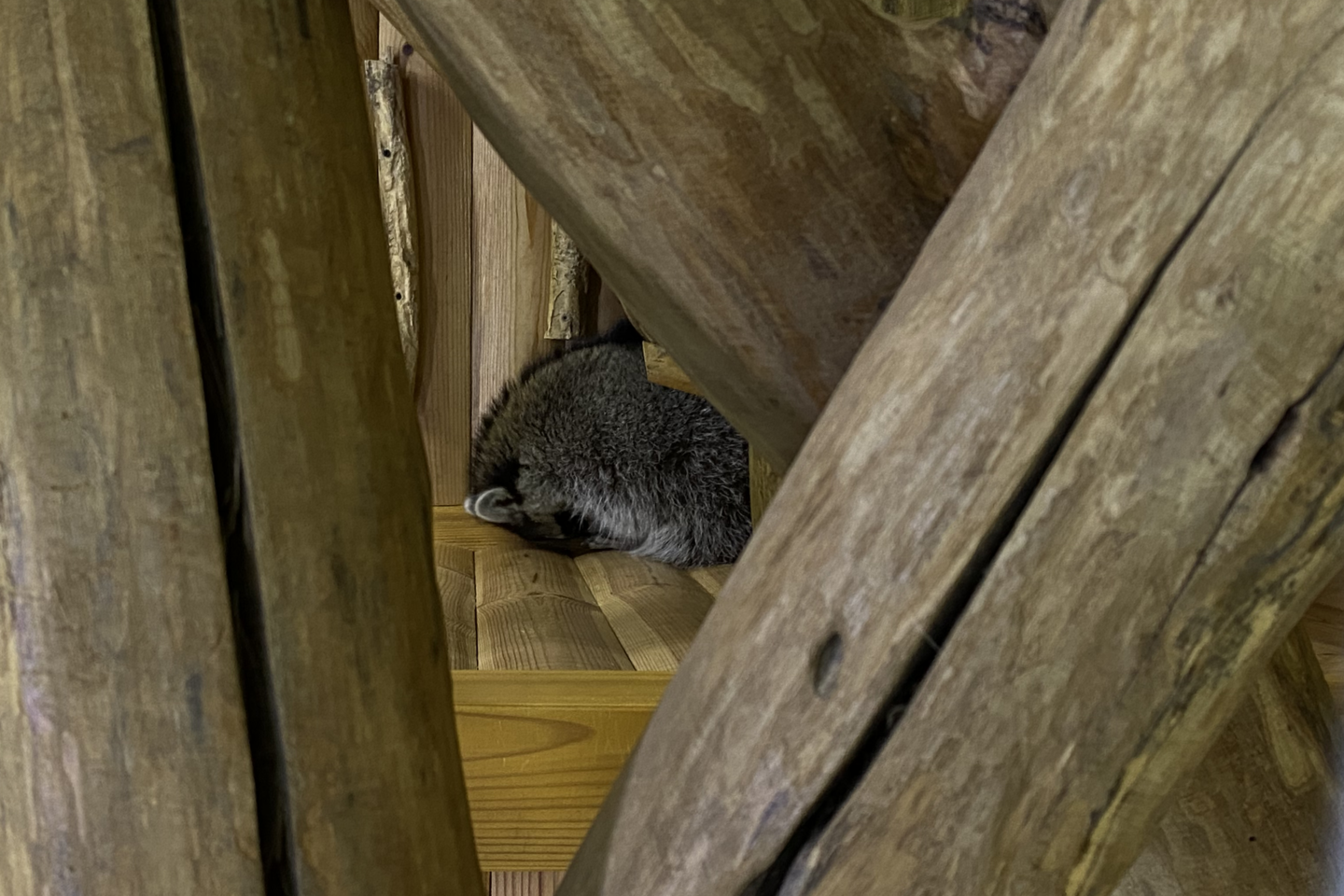
Photo: uanimals.org.
Last year in January, UAnimals first asked the competent authorities to check the living conditions of exotic animals in Kyiv's Zvieropolis and the legality of their acquisition and keeping. For a year now, since September 2024, the organization's animal rights activists have been suing Zviropolis.
"However, the Zhytomyr court considered the case in writing and did not recognize the work of the contact zoo as illegal. The judges demanded the results of the inspection of the State Ecological Inspection. The latter, in turn, could not get to the petting zoo, justifying itself by saying that the owner was abroad," the animal rights activists say.
Since then, UAnimals has asked to consider the case at an open meeting with the participation of all parties, but they were denied again. The Seventh Administrative Court of Appeal will consider the case in writing and decide whether the decision of the Zhytomyr District Court was lawful.
-
In August, the State Environmental Inspectorate received 77 complaints about the "Maki-Paki" petting zoo located in the City Center shopping mall in Odesa. At the time, visitors suspected that a raccoon named Lucifer was being kept in inadequate conditions and was being treated cruelly-the animal appeared emaciated. Environmental inspectors, together with representatives of the local authorities and veterinarians, conducted an inspection of the living conditions for all animals in “Maki-Paki” and found no violations. However, the raccoon was left under supervision.
-
Three years ago, in August 2022, information appeared on social networks about a donkey from the petting zoo at the SOSNOVEL countryside complex near Voropayiv in the Kyiv region. Concerned citizens noted that it was being kept in improper conditions and required medical treatment. The donkey stood in one spot and did not move, and its hooves appeared deformed. Animal protection activists from UAnimals filed a complaint to law enforcement agencies.

Photo: facebook.com/UAnimals.official.
-
In 2023, animal rights activists also contacted the police because, at the “Zolotyi Fazan” recreation center in the Kyiv region, the administration of the local zoo allowed visitors to use lion cubs as photo props.
-
That same year, environmental inspectors called law enforcement officers to a zoo in one of the settlements of the Mukachevo district, where wild animals— a Himalayan bear, a puma, and other creatures-were kept in cages that were too small for them.

Photo: zakarpattya.net.ua.
All of these cases confirm that treating animals solely as a means of earning money is a system that puts profit above the life of a living being and humanity.
Why the activity of contact zoos is illegal
As early as 2006, the Ukrainian parliament passed the law "On the Protection of Animals from Cruelty." However, there are a number of problems with the implementation of its provisions.
These have been outlined by UAnimals lawyer Anastasiia Hevchuk. According to her, the operation of petting zoos exists in a legal 'gray area' built on legislative loopholes.
Argument #1. Although Article 8 of the law clearly requires a permit for keeping wild animals in captivity, the state has not yet approved the procedure for issuing such documents.
But the lawyer insists that this is not an excuse, as the Grand Chamber of the Supreme Court ruled in case No. 910/8122/17 that the absence of a procedure for issuing permits does not give the right to carry out activities without them.
"Thus, almost every wild animal kept in a private petting zoo is illegal by definition," the lawyer summarizes.
Argument #2. Article 25 of the same law prohibits the provision of photo services with wild animals. There is an exception for "zoos, circuses and dolphinariums." Here Anastasia Gevchuk emphasized that most petting zoos are not legally zoos. In order to get around the ban, they simply use this term in their name. According to the lawyer, this is a direct violation.
Argument #3. Anastasia Gevchuk explains that constant contact with dozens of people, noise, bright light, inability to hide, and improper diet (when visitors feed animals with food they bring) are chronic stress, torture, and physical suffering for animals. And such a situation already falls under the definition of "cruel treatment" in accordance with Article 1 of the Law on the Protection of Animals from Cruelty.
Argument #4. In Article 25, the law explicitly prohibits the activities of mobile menageries and mobile exhibitions of wild animals. According to the lawyer, many "contact" exhibitions in shopping malls are in fact just such temporary exhibitions.
"We have a business that exists thanks to loopholes in the legislation, inaction of the authorities, and lack of awareness of citizens. Every ticket bought to such an establishment is a financing of suffering and support of lawlessness," emphasized Anastasia Gevchuk.
She urged people not to visit petting zoos in order not to support their illegal activities financially.
What penalties do the owners face
One of the reasons why new petting zoos and mobile animal exhibitions keep popping up again and again is likely because the fines for improper animal maintenance are minuscule compared to the profits that unscrupulous owners receive from visitors.
UAnimals says that the absence of animal documents entails a fine of 510 to 1700 hryvnias with the confiscation of animals (Article 88-1 of the Code of Administrative Offenses). If the inspection confirms inadequate conditions for keeping wild animals, then the fine will be from UAH 51 to 850 with the confiscation of animals (Article 88-3 of the Code of Administrative Offenses).
But this is provided that environmental inspectors do conduct an inspection. It is not uncommon for inspectors to simply turn a blind eye to the activities of petting zoos and traveling exhibitions. To a certain extent, this is a legacy of the uncontrolled 1990s with their corruption in environmental supervision and local authorities, when, for a monetary reward, those who were supposed to monitor compliance with the law "did not notice" the lack of permits and did not ask about the availability of veterinary documents for animals.
Visiting a petting zoo and dying: the danger these facilities pose to visitors
In late August, the news that a deer died of rabies in a private mini-zoo in the village of Petropavlivska Borshchahivka came as a shock. Everyone who visited this facility from August 16 until the death of the animal was urged by the local authorities to consult a doctor to prevent the occurrence of this deadly disease.
UAnimals says that 12% of animals in contact zoos are carriers of pathogenic bacteria that are resistant to antibiotics. They cause diseases in animals and can be transmitted to visitors. Such bacteria are especially dangerous for children.
Scientists from the Israeli Ariel University presented the results of a study that collected material (feces, skin, wool, feathers) from 228 animals belonging to 42 different species in 8 randomly selected contact zoos in Israel. Among the bacterial strains identified were E. coli ST656, which causes "traveler's diarrhea," and E. coli ST127, a common cause of urinary tract infections in humans.
“Even if the animals in petting zoos look healthy, are you really willing to risk your children’s safety for amusement?” animal rights activists ask.
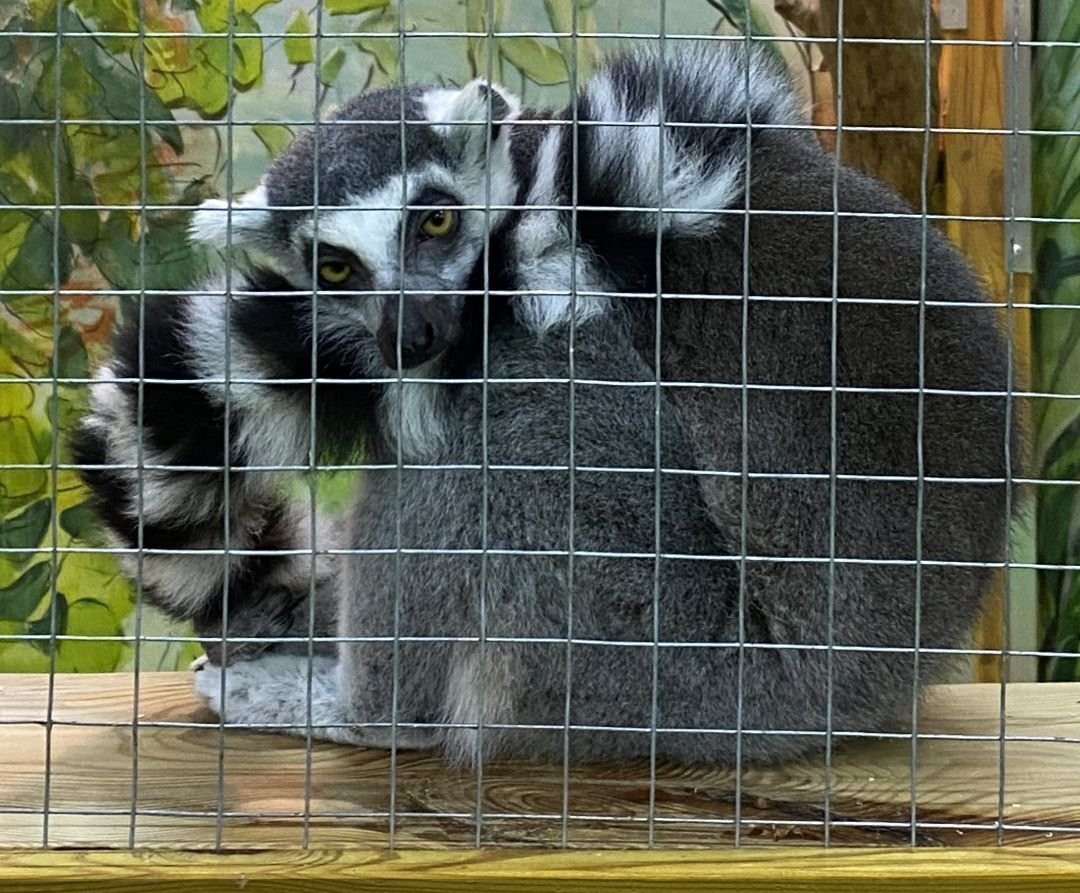
Photo: facebook.com/UAnimals.official.
Why is the relevant ministry silent?
Previously, the protection of wildlife was prescribed as one of the main tasks of the Ministry of Environmental Protection and Natural Resources of Ukraine. But even then, the ministry allowed itself to ignore the blatant facts of animal cruelty that were discussed and condemned by the whole country. An illustrative example is the complete silence of the Ministry of Environment regarding the abuse and brutal murder of a pregnant wild boar committed by employees of the agricultural company Continental Farmers Group in the Ternopil region.
Now, since the relevant ministry has been dissolved as a separate administrative unit-having been merged with the Ministry of Economy and the Ministry of Agriculture and Food-there is even less reason to expect attention to animal welfare issues. In the newly established ministry, environmental concerns are essentially relegated to the background. All it takes to see this is to examine the approved Government Action Program, in which very little attention is devoted to environmental protection.
However, time will tell-and we will be glad to be proven wrong. Just in case, let’s remind officials at the Ministry of Economy that Paragraph 392 of the Regulations on the Ministry of Economy, Environment, and Agriculture of Ukraine provides for the following function: “implementation of state policy in the field of protection of wild, domestic, and stray animals from cruelty and coordination of activities of other executive authorities in the field of animal protection from cruelty, as well as supporting the work of public organizations monitoring this area.”
What about Europe?
In the European Union, since 1999, the requirements for keeping wild animals in captivity have been regulated by Council Directive 1999/22/EC, better known as the Zoos Directive. It sets common rules for all zoos in the EU. This is the basic document on which all further national regulation is based.
The main idea of the directive is to ensure the protection of wild fauna and improve the welfare of animals in zoos, as well as to make zoos primarily a tool for biodiversity conservation, not a place for entertainment.
Key requirements of the Zoos Directive
1. Mandatory licensing. Every zoo in EU member states must obtain a license to operate. Without this, it is not allowed to admit visitors.
2. Regular inspections. The authorities are required to conduct inspections to ensure that the keeping conditions comply with the requirements. In case of violations, the zoo may lose its license or be closed down.
3. Animal welfare. Zoos must:
- provide conditions that meet the animals’ biological and behavioral needs;
- ensure veterinary care;
- prevent suffering, injuries, and mistreatment.
4. Species conservation. Institutions are obligated to:
- participate in species conservation (breeding, reintroduction programs into the wild);
- promote scientific research.
5. Educational role. Zoos must inform visitors about nature conservation and the importance of protecting wild fauna.
The directive does not explicitly use the term “petting zoo”, but its requirements essentially eliminate the possibility for such establishments to operate in the classic sense:
- “child–animal” contact contradicts the principle of minimizing stress and injuries;
- small premises (shopping malls, rooms without natural light) cannot provide conditions adequate for biological needs;
- the absence of educational and conservation functions means these institutions cannot be defined as zoos.
Therefore, in most EU countries, even if "contact" formats are not explicitly prohibited, they do not meet licensing requirements and do not actually exist. However, research by European animal protection organizations shows that the implementation of the directive is uneven across the EU: standards are higher in Western Europe, while some Central and Eastern European countries still have problems.
Currently, the EU is discussing updating the directive to make it more specific and stringent, in particular regarding human-animal contact.
How to act to protect animals in a petting zoo
UAnimals lawyers have prepared a clear step-by-step guide for everyone on how to act if you witness violations of wild animal welfare regulations in petting zoos.
-
Call the police at 102 and report violations of regulations concerning the keeping of wild animals in captivity (part 3 of Article 88-1 of the Code of Ukraine on Administrative Offenses) and animal cruelty (Article 89 of the Code of Ukraine on Administrative Offenses).
-
If possible, document all violations with photos and videos.
-
When the police arrive, insist on the removal of the animal(s).
-
If the patrol does not arrive or is inactive on site, call the National Police hotline and file a complaint against the officer.
-
Next, contact the district police department with a statement about the offenses. Attach photos and videos from the scene to your statement.
-
Register your statement and obtain its incoming number.
“Remember, you are acting within the legal framework. Therefore, remain calm and insist on compliance with the law,” say animal rights activists.
Time to Act
Ukraine has legislated its intention to move towards Europe. It must include the introduction of European animal protection practices. Ukrainian lawmakers must finally put an end to the existence of contact zoos in our country.
Because every minute in a cramped cage or in the hands of visitors under the photo flashes is a real suffering for wild animals. And while we are having fun, they are paying for this "fun" with their lives and health.
Society must demand that the authorities take this step to protect those who cannot protect themselves.

